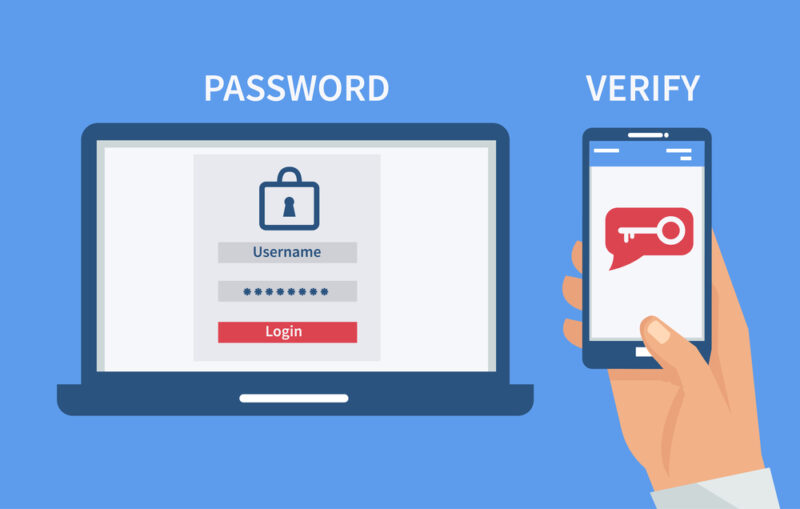Many would argue that 2-factor authentication is a thing of the past but still, people are using 2-factor authentication as a means to secure their accounts. In this article, we will talk about the importance of 2-factor authentication, what you need to know and how it can help businesses prevent online frauds. Every time we open an eCommerce platform to order something we share sensitive data such as credit card details and personal information and keep it stored for easy accessibility for the next time you want to shop. Even though keeping data stored on platforms sounds easy and quick, it is always very vulnerable to cybercrimes. The reason why 2 factor authentication adds an extra layer of security to customers’ sensitive data.
What is two Factor Authentication?
The 2-factor authentication process requires a user to verify at least 2 pieces of information before logging into accounts. On the basis of which the user will be granted access. In previous years, we have seen an increase in the number of websites losing businesses due to online frauds. As technology gets more sophisticated, crimes get sophisticated and as crimes get sophisticated, old security systems become redundant. A little human error can expose the system, the consequences of which are drastic. Online criminals can use Stolen card information to wreak havoc on businesses. The reputation of affected victims can be severely damaged, making them lose their customers. According to a report, online criminals stole more than $107 billion in the past 6 years or so.

When you have to enter only your password or username in order to log in to the account, that is considered a single-factor authentication. Whereas 2fa provides an additional layer by asking customers to confirm a code received on their cell phone or through email for authorized access. When it comes to online accounts, it may involve the following:
- It may include a PIN and no one else knows but yourself
- It can also include an authenticator fob or a USB security key
- Fingerprint or retina or voice pattern
So it basically includes something you have, you know or you are. For example: when you purchase something with your credit card and have to enter a PIN in order to authorize the payment. That PIN is an example of 2fa.
Why is 2-factor Authentication Important?
Data breaches uploads hundreds of passwords and usernames for sale on the dark web. Many of these passwords are less secure as many people around the world use the same password for multiple platforms which are easier for hackers to hack into. According to Verizon’s research, 81% of data breaches happen either because of leaked or weak passwords. Various online platforms use knowledge-based authentication. The downside of having a knowledge-based authentication is that a lot of user data can be found online. So knowledge-based authentication is not very strong in this day and age, because it can be easily breached and can’t provide the additional security of two-factor authentication.
2-factor authentication is an important aspect for businesses and for customers since many businesses are moving towards digital platforms, the threats of data breaches are becoming increasingly widespread. For decades, online businesses have tried to improve the technological infrastructures by setting password requirements. Also, requiring the user to change their password after every two weeks to ensure that unauthorized individuals haven’t entered the system without their knowledge. At the end of the day, the passwords are still vulnerable as many times users use one password for multiple other platforms. Phishing and social engineering methods of securing passwords are two very common techniques.
Therefore 2-factor authentication allows the user and the administrator to make sure that the passwords of the customers are not compromised.
The most common methods of using 2-factor authentication are as follows:
- SMS token: It sends a code to the user’s phone number for authentication
- Email token: It sends a code to the user’s email address for customer authentication
- Key fobs and USB: It’s hardware that generates a token for the user which are for a limited time only
- Software token: It is computer software or an application, after installing which, it generates a token for users
- Phone call: 2-factor authentication through phone call generates a token through a call
Biometric verification: These include the authentication of the user’s biometric features, such as retina or fingerprint or hand scanner.
